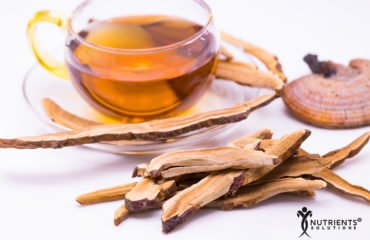Wellness Demystified: We Can Help You Discover Optimum Health
7 Benefits of White Willow Bark: Nature’s Painkiller

White willow bark is the ancestor of acetylsalicylic acid, which is the active ingredient in aspirin. It’s synthesized from the salicin found in white willow bark, which is a compound shown to have anti-inflammatory and pain killing effects. White willow bark has been traditionally used to help reduce pain, fever, and inflammation, and current research suggests it’s as effective as some anti-inflammatory drugs in treating pain. White willow bark is a source of cancer-fighting antioxidants and is a natural antidiarrheal. The safety of this medicinal herb suggests it’s a natural remedy that can potentially replace aspirin use.
White willow bark comes from white willow trees and has been used as medicine for thousands of years. In fact, it was used in the era of Hippocrates, who was the Greek philosopher known as the “Father of Medicine.” White willow bark contains a compound called salicin that is comparable to aspirin. It’s used to relieve pain, and studies show it is effective in treating backaches, migraines, and menstrual cramps. Historically, people chewed on the bark to relieve pain and reduce fever. Today, you can find white willow bark in capsule and tincture forms and use it as a natural remedy for colds and flu, as well as to help treat chronic pain [1].
1. Reduces Inflammation
White willow bark can be used in place of aspirin and other drugs used to treat pain and chronic inflammation. Inflammation is a natural part of the body’s immune system response, as it allows wounds, infections and damaged tissue to heal. However, chronic inflammation, with your immune system constantly in action, is too much of a good thing. Chronic inflammation is linked to the development of serious diseases, such as heart disease, diabetes, and cancer [2].
White willow bark is shown to lower inflammation more effectively than celecoxib, which is a non-steroidal anti-inflammatory drug (NSAID) often prescribed to patients with arthritis and other inflammatory conditions. One way it works is by suppressing the immune system’s inflammatory response. Through its antioxidant abilities, it also works by reducing oxidative stress, which is the damaging of cells that causes an inflammatory response [3].
2. Relieves Pain
The body’s protective natural process of inflammation at the site of injury or infection can cause fluid to leak into tissues, stimulating nerves and resulting in pain [4]. By reducing inflammation, white willow bark works to relieve pain caused by inflammation. However, it also has analgesic properties in its own right.
In a study on 191 participants with chronic lower back pain, 240 mg of white willow bark extract taken daily was shown to eliminate pain in 39 percent of people within just one week. Meanwhile, there were no adverse side effects. Due to its safety as a natural herbal remedy, this suggests white willow bark is worth a try in people suffering from chronic pain [5].
In a study on osteoarthritis patients who took the same dose of 240 mg per day, white willow bark extract reduced the pain score in all patients by an average of 14 percent. Participants also reported improved mobility and reduced joint stiffness with white willow bark [6].
3. Reduces Fever
Before fever reducers like Tylenol and aspirin were created, people used white willow bark as a natural fever reducer in several ancient civilizations, including the Sumerians, ancient Egyptians, and ancient Greeks. In fact, the active ingredient in aspirin, called acetylsalicylic acid, was synthesized from the naturally occurring salicin and salicylic acid found in white willow bark. Today, there are records of white willow bark being used to effectively treat malarial fever in the 18th century before acetylsalicylic acid was synthesized in the 19th century [7].
4. Helps Fights Cancer
Test tube studies show that the salicin, flavonoids, tannins, and polyphenols in white willow bark lend it anticancer abilities. White willow bark is found to have antiproliferative and proapoptotic effects similar to NSAIDs, which means it promotes apoptosis or the programmed death of cancer cells [8]. White willow bark also helps prevent cancer by blocking angiogenesis, which is an essential process in the progression of tumors that can become cancerous. In a study on mice, white willow bark extract was shown to inhibit tumor growth [9].
5. Helps Stomach Ailments
White willow bark is a rich source of tannins, which soothes stomach aches and improves gastrointestinal ailments such as diarrhea, constipation and bloating. Tannins have an astringent quality, which reduces inflammation in the gut and prevents ulceration. Tannins also have an antidiarrheal effect and prevent toxins and microorganisms from attaching to intestinal walls [10].
6. Provides Antioxidant Support
Antioxidants are responsible for countering oxidation, which causes cell and DNA damage and plays a role in the progression of diseases. White willow bark contains several antioxidants, including salicin, flavonoids, tannins, and polyphenols. The antioxidant activity in white willow bark has been shown to reduce oxidative stress in the heart and kidney in animals with high cholesterol [11]. Another study found that the antioxidants in white willow bark reduced cell death in test tubes [12].
7. Treats Headaches and Migraines
Aspirin is often used to treat headaches and migraines, and its predecessor, white willow bark, can also be used as a natural treatment. White willow bark works to help eliminate headaches and migraines not just through its analgesic and anti-inflammatory properties, but also by helping to lower blood pressure in your head’s blood vessels. This relieves tension, helping prevent and treat tension-type headaches or migraines [13].
Bottom Line
Anti-inflammatory pain relievers like aspirin and ibuprofen cause long-term gastrointestinal damage when used in excess or for long periods of time. Meanwhile, white willow bark is shown to be equally effective but without long-term adverse effects, suggesting it may be a better alternative. However, white willow bark shouldn’t be taken in doses that are larger than recommended, because it can cause gastrointestinal damage in high amounts. White willow bark is not recommended for easing menstrual cramp pain because it may increase bleeding [14].


© 2019 Nutrients Solutions, LLC. All rights reserved. Disclaimer: The information provided is for educational purposes only and does not constitute medical advice. Always seek the advice of your physician or qualified healthcare provider with any questions or concerns about your health. Check with your doctor before beginning any exercise program. Never disregard or delay seeking medical advice because of something you have heard or read in this article or the internet.












